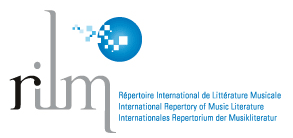Music and society. Circulations, receptions and social imaginaries related to Tito Francia.
Keywords:
Tito Francia, recepción musical, música mendocina, Argentina, Nuevo CancioneroAbstract
Tito Francia was a musician from Mendoza that performed different roles and occupied many spaces; he was a virtuous guitar player, a composer, a radio musician, a professor and a foundation member of the Nuevo Cancionero movement. His musical practices, understood as "actions in a common social world" are articulated once with the others, shapping a net of links and cooperation among them. In this paper, we undertake Francia circulation and reception in order to testify the circulations circuits he had, as well as to take in consideration the building of sense in his music and practices from the reception he obtained. We also want to analyze, from recognition terms and his actors, the construction of imaginaries around this musician as well, as a mirror, on Mendoza society.
Downloads
Published
Issue
Section
License
ATTRIBUTION-NONCOMMERCIAL 4.0 INTERNATIONAL
https://creativecommons.org/licenses/by-nc/4.0/
You are free to:
- Share — copy and redistribute the material in any medium or format
- Adapt — remix, transform, and build upon the material
- The licensor cannot revoke these freedoms as long as you follow the license terms.
Under the following terms:
- Attribution — You must give appropriate credit , provide a link to the license, and indicate if changes were made . You may do so in any reasonable manner, but not in any way that suggests the licensor endorses you or your use.
- NonCommercial — You may not use the material for commercial purposes .
- No additional restrictions — You may not apply legal terms or technological measures that legally restrict others from doing anything the license permits.
Notices:
You do not have to comply with the license for elements of the material in the public domain or where your use is permitted by an applicable exception or limitation .
No warranties are given. The license may not give you all of the permissions necessary for your intended use. For example, other rights such as publicity, privacy, or moral rightsmay limit how you use the material.







